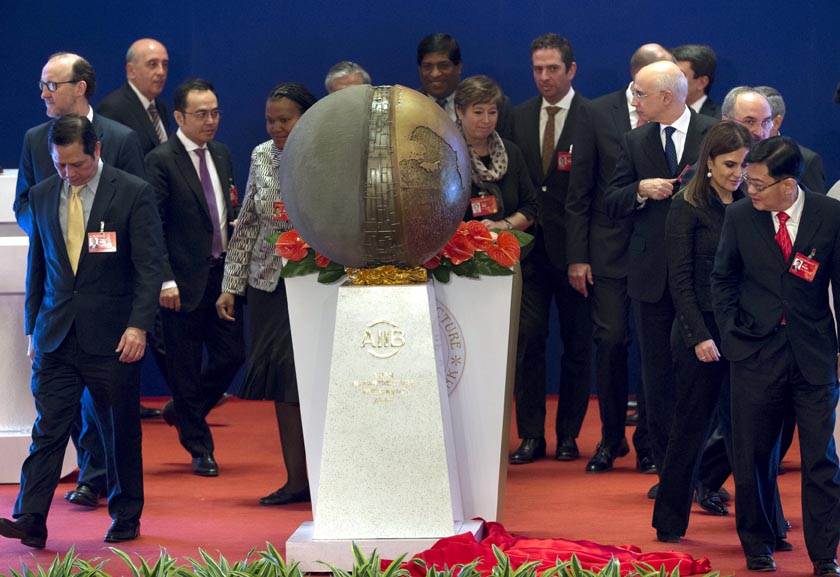China launches new AIIB development bank as power balance shifts, Nepal is founding member
BEIJING: Chinese President Xi Jinping launched a new international development bank seen as a rival to the US-led World Bank at a lavish ceremony on Saturday, as Beijing seeks to change the unwritten rules of global development finance.
Despite opposition from Washington, US allies including Australia, Britain, German, Italy, the Philippines and South Korea have agreed to join the Asian Infrastructure Investment Bank (AIIB) in recognition of China's growing economic clout.
"Asia's financing needs for basic infrastructure are absolutely enormous," Xi said in a speech at the launch, adding the bank would aim to invest in projects that were "high-quality, low-cost".
The AIIB is expected to lend $10 billion-$15 billion a year for the first five or six years and will start operations in the second quarter of 2016.
Even so, no specific infrastructure projects would be announced "for the time being", AIIB President Jin Liqun told Reuters on the sidelines of the launch.
DIPLOMATIC COUP
Luxembourg Finance Minister Pierre Gramegna said the establishment of the AIIB was "further proof of the rebalancing of the world economy".
A successful AIIB that sets itself apart from the World Bank and the International Monetary Fund would be a diplomatic triumph for China, which opposes a global financial order it says is dominated by the United States and does not adequately represent developing nations.
The AIIB will require projects to be legally transparent and protect social and environmental interests, but it will not force borrowers to adopt the kind of free-market practices favoured by the IMF, sources told Reuters in September.
By not insisting on some free market economic policies recommended by the World Bank, the AIIB is likely to avoid criticism levelled against its rivals, who some say impose unreasonable demands on borrowers.
It could also help Beijing stamp its mark on a bank regarded by some in the government as a political as much as an economic project.
Baikuntha Aryal, joint secretary at Nepal's Ministry of Finance, said the Himalayan country was hoping the AIIB would fund roads, hydropower and urban development projects.
"The AIIB is specifically for infrastructure so we see it as a supplement to projects in Nepal funded by the ADB (Asian Development Bank) and World Bank," he said.
China has an initial subscription of $29.78 billion in authorised capital stock in the AIIB, out of a total of $100 billion. It invested another $50 million on Saturday.






